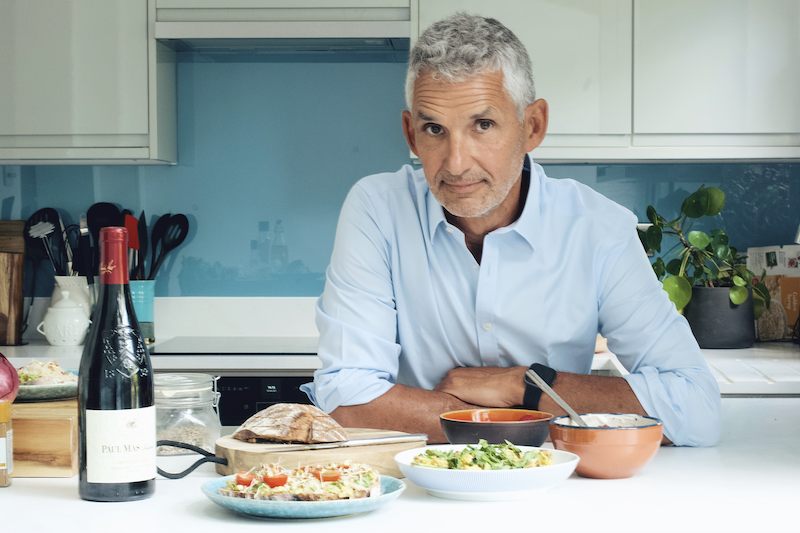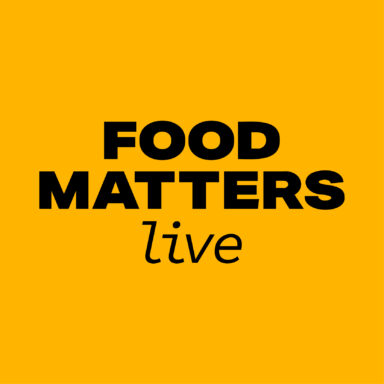Jamie Oliver Group’s CCO talks consumer trust, food culture and the veggie revolution

In anticipation of Tastes of Better Ascot in April, Food Matters Live sat down with Megan Van Someren, Chief Commercial Officer at the Jamie Oliver Group and a confirmed panel speaker. Keep reading to hear her thoughts on the evolution of consumer trust, the rise of flexitarian diets and the importance of fostering an inclusive food culture.
Which food and drink trends stand out to you for 2024 and beyond?
As flexitarian lifestyles continue to be adopted, we will inevitably see a few trends carry forward into the year such as more conscious or reduced consumption of meat, higher welfare choices and ongoing innovation in meat alternatives.
A growing trend that we’re particularly excited about is the celebration of veg, with people increasingly embracing the bright, beautiful and vast plant world and making the humble vegetable the shining star of their meals.
We already see this in search behaviour across jamieoliver.com with our vegetarian recipes homepage delivering the second highest in traffic and cauliflower ranking as the second most searched term after gnocchi.
What are some factors that shape food culture and how does this impact wider issues like health and sustainability?
Food culture is complex. It encompasses the art of cooking and how it can inspire us to express our creativity and connect with our cultural identities. It also includes the idea of food as a means of fostering human connections through emotions, experiences, and storytelling. Furthermore, it highlights the growing importance of food for good, which involves ensuring that what we eat is healthy, sustainably grown, and accessible to all communities.
“A growing trend that we’re particularly excited about is the celebration of veg, with people increasingly embracing the bright, beautiful and vast plant world and making the humble vegetable the shining star of their meals.”
With this complexity, food culture also brings great opportunities. It’s both a privilege and a responsibility to work in food. It’s our job as a collective industry to stay on top of the complexity, to never settle and to passionately be in service of people – their health and the health of the planet.
What’s a key learning you’re looking forward to sharing with our audience at Tastes of Better?
Over the past 18 months, the Jamie Oliver Group have done a great deal of work to deconstruct and understand the modern mealtime moment. Not only did we conduct qualitative and quantitative research but we also analysed search behaviour and social engagement across our 4 million monthly visitors to jamieoliver.com. I look forward to sharing our findings on the trends panel at Tastes of Better but there is one learning that consistently reveals itself – people’s differing approaches to ‘scratch-ish’ cooking.
“It’s both a privilege and a responsibility to work in food. It’s our job as a collective industry to stay on top of the complexity, to never settle and to passionately be in service of people – their health and the health of the planet.”
The reality is everyone defines cooking differently, and that’s a good thing! From the varying degrees of time limitations to the spectrum of skill & confidence levels in the kitchen, multiple factors will influence how people cook and what they use day-to-day. For the Jamie Oliver brand, our goal is to work with people to get them into their kitchens and cooking, no matter their definition of “scratch-ish” cooking.
Would you say that consumers generally trust the F&B industry, and how have you seen this change throughout your career?
In recent years, we have seen two macro forces impact trust in the industry: COVID and the cost of living crisis. COVID brought trust to an all-time high with grocery store workers being part of the front line, food delivery becoming our Friday night saviour, and a newfound appreciation for just how fabulous our freezers can be.
Looking back at the last 18 months, with rising food costs and inflation pressures across all F&B categories, it forced us to make difficult buying decisions and left many of us questioning the industry at large. So now what? As inflation starts to settle and we hopefully begin to see a more optimistic year ahead, it’s important for all of us, no matter our role in the food system, to remember the underlying drivers of trust.
“It’s important for all of us, no matter our role in the food system, to remember the underlying drivers of trust.”
Price and taste will always remain paramount but added resilience comes from two factors: Firstly, innovation — both new product development but also in making necessary system-wide changes. And secondly, being guided by a purpose and a desire to make a meaningful difference – not just in clever advertising and communications but in tangible, measurable actions.

















